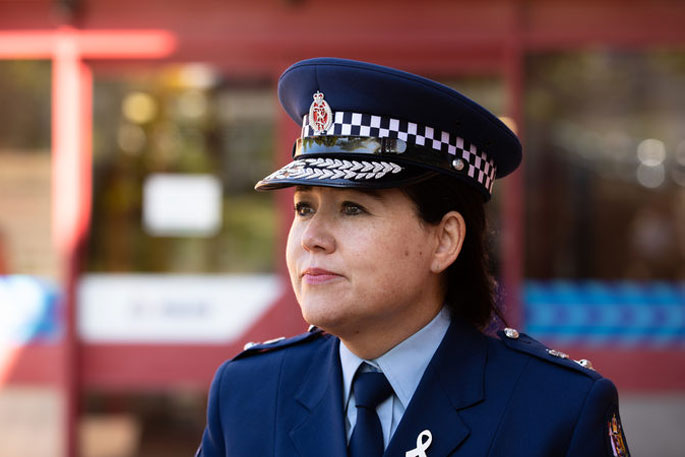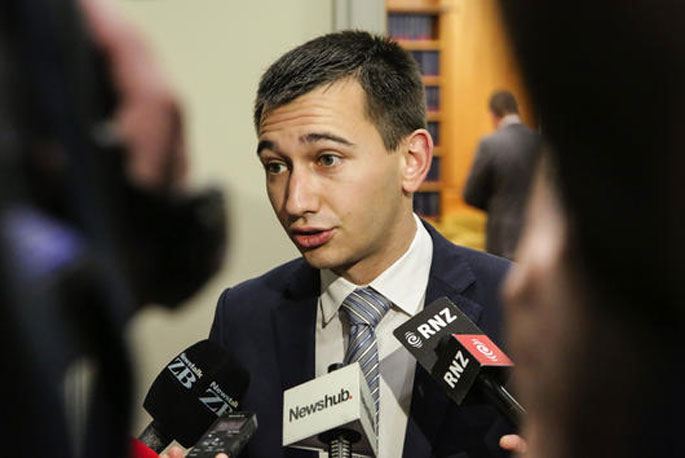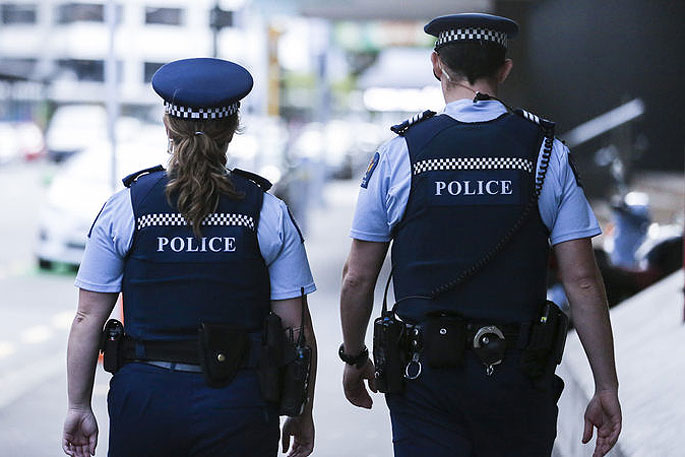Frontline police officers are increasingly fearful of being attacked or shot on the job and some have refused to go to high-risk callouts, its been revealed.
As a result most frontline constables will get an extra week of training this year to help them cope with the increasing risks.
The Frontline Skills Enhancement Course will also help make use of the mothballed Police Training College in Porirua, which is not processing new recruits for the time being.
The course will take 1200 constables with at least two years' experience, aiming to improve their tactical and operational skills.
Police say it comes following feedback from staff, specifically around the needs for practical firearms training, tactical communications training, and even first aid.
Police assistant commissioner Tusha Penny says the course is part of the police's Frontline Safety Improvement Programme, set up by Commissioner Andrew Coster last year.
"One of the key reasons to do this as well is to make sure that we stop, reflect and go, where to next year and beyond for our frontline training," Penny says.
"A really big component of this is listening to our people who are on the street every shift to ensure that our training is aligned with our operational requirements."
 Officer training needs to be aligned with operational requirements, says assistant commissioner Tusha Penny. Photo: RNZ.
Officer training needs to be aligned with operational requirements, says assistant commissioner Tusha Penny. Photo: RNZ.Those operational requirements appear to be changing fast.
The proliferation of firearms and a general increase in aggression from offenders has frontline cops concerned.
RNZ has learned of times constables have refused to attend callouts, such is the fear of jobs turning out badly.
Staff fears not a surprise
Police Association president Chris Cahill says it is no surprise staff are fearful heading to some jobs because they are only human.
"I think it's a reflection of what we're seeing, the dangers out there," Cahill says.
"That's why this training is really only one part of the safety improvement programme.
"We see the deployment and looking at how the officers are deployed, single crewing, those sorts of things, as being important to consider as well, and also what equipment they have."
Penny says she has not heard of staff refusing to attend jobs, but that does not mean it has not happened.
"What I do know about policing is, they're mums and dads and sons and daughters and uncles and aunties, and I couldn't respect our frontline more if I tried," Penny says.
"These are our community members who step up to be guardians who say, you know what, when someone rings 111, and it's their darkest day, or there are incidents that the community want to run from, we're actually gonna go and we're gonna try and keep everyone safe."
Increase in IPCA complaints
The flip side of the fear officers are experiencing on the job is when things go wrong.
The Independent Police Conduct Authority has seen a rise in complaints in recent years, and one theme is situations where officers have mishandled situations.
RNZ has been told there is always a worst-case scenario in an officer's mind, and without adequate training, they are often overreacting to lesser incidents.
Penny says those incidents are dealt with by the IPCA when they arise, and help inform training blocks like the ones frontline constables will undertake.
Cahill says it's always easy to look back with the benefit of hindsight, but policing in the moment is no easy task.
He says this course will only improve those outcomes.
"What it does is recognise that frontline policing is a specialist area in its own right," he says.
"It should be treated similarly to things like the CIB or Youth Aid, but we haven't followed that up with training in the past, so having specialist ongoing training we think is of real value."
Gangs 'feeling more emboldened'
 National Party police spokesperson Simeon Brown. Photo: RNZ / Richard Tindiller.
National Party police spokesperson Simeon Brown. Photo: RNZ / Richard Tindiller.National Party police spokesperson Simeon Brown welcomes the course, which he says is a good step by the organisation to support their own staff development.
But he said the government needed to do more to support the police.
"The reality is this is happening because our streets are becoming less safe and we're seeing an increasing presence of gangs who are feeling more emboldened, and are not afraid to use their firearms which they didn't hand back in the gun buyback last year."
Brown says the government needs to deliver on its promise of 1800 new police, which he said is still more than 400 officers short more than nine months after the deadline.
The Frontline Skills Enhancement Course will run throughout the year.
A police spokesperson says the police recruitment pipeline will likely reopen again in the coming months on a district or area basis, where applications are needed most.



4 comments
Fear
Posted on 29-03-2021 08:31 | By The Professor
Fear is something people shouldn't have to experience when going to work, so I can understand this to a degree. However, the Police are there to protect us and will, from time to time, have to deal with dangerous operations/callouts - it's unfortunately part of the job. In terms of fearing action from the IPCA - political correctness and giving people too many rights is the main problem here. It comes to something when a serious criminal violently resisting arrest can complain about being mistreated. Our Police do a great job.
give the police some strenghth
Posted on 29-03-2021 08:31 | By hapukafin
Notsurprised but they did signup to be a policeman.Everything is to PC out there against the police and the courts are allowing criminals to get away with it.Being accused of police brutality or using too much force whilst trying to stop a incident.You cant talk sense in these situations.Force is required. How about the courts giving our police a bit more support.How about our government sort our laws and appropiate punishment out so that there is a deterrant factor in it.In some overseas countries you cant even swear at a policeman.This need to be addressed.
Fair play
Posted on 29-03-2021 11:22 | By Slim Shady
No problem. I think I’ll refuse to pay my taxes then.
WHAT?
Posted on 29-03-2021 21:05 | By Yadick
In the army you'd be a deserter. You'd hope your fellow officers had your back. Surely you take on the job and oath to serve and protect (or whatever it is in NZ) knowing that your first call in danger. That unfortunately it may cost your life. It's a dangerous job. I'm sure this would only be a very small handful. As others comment here, the world has gone over-the-top PC and the courts need to back the Police, then perhaps we wouldn't have some in this position. Arm the Police and give them more power than the criminals.
Leave a Comment
You must be logged in to make a comment.